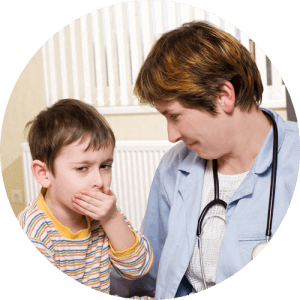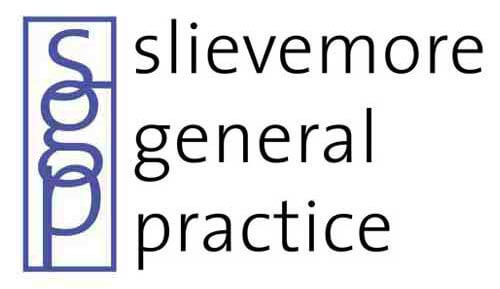Pregnancy Care
Antenatal Care
Choosing your Antenatal Care preference for the first time can be confusing. Let’s us outline your three options:
1. Combined care
This means you will divide up your schedule of visits between your GP of choice and a midwife or team of midwifes at your hospital of choice.
This service at the Dublin Women’s Clinic has an initial consultation charge of €70, the remainder of the schedule is covered by the Maternity & Infant Care Scheme.
2. Semi–private Care
You will divide up your schedule of visits between your GP of choice and your consultant Obstetrician of choice.
This service at the Dublin Womens Clinic has an initial consultation charge of €70, the remainder of the schedule is covered by the Maternity & Infant Care Scheme.
3. Private Care
You will have one appointment with your GP to confirm your pregnancy (€70) and a referral letter will be sent to your consultant Obstetrician. All visits thereafter will be with your consultant.
Please note your baby will not be covered in this instance for the 2 week and 6 week developmental check
Pregnancy Care
Care during pregnancy is provided free-of-charge to any persons ordinarily resident in Ireland under the Maternity & Infant Care Scheme. Ordinarily Resident means anyone who is living in Ireland for at least one year. The Maternity & Infant Care Scheme is programme of care provided by a GP of your choice and an obstetrician in your local hospital.
The scheme provides for a number of scheduled visits to your GP and your Maternity Hospital. The initial visit to register for the scheme should be with your GP before 12 weeks. This is the only appointment that will be charged (€70) within the scheme. In reality, this is usually the visit when your GP confirms your pregnancy, soon after you have missed a period or done a positive test yourself. The GP then sends a referral letter to the hospital for shared care, and will advise you when the other visits are.
It is important to note that these visits do not allow for care for other illnesses which you may have which are not related directly to your pregnancy. Our normal consultation charges will apply in such cases.
We ask that you please inform the receptionist when booking in your appointments that the appointment is for a Combined Care/Antenatal visit. You will be required to provide a urine sample at each visit, a sample jar can be collected at reception.
Our Antenatal Clinic runs on Wednesday between 9am and 5pm. If these times don’t suit please discuss with your doctor and they will be happy to accommodate you at an alternate time.
Schedule of Visits
4 to 8 weeks
Initial visit with G.P.
Week 24
G.P. Visit
Week 30
G.P. Visit
Week 34
G.P. Visit
Week 37
G.P. Visit
Week 39
G.P. Visit
Week 16 to 20
Hospital Visit for booking visit scans and bloods
Week 28
G.P. Visit (Hospital if first pregnancy)
Week 32
Hospital Visit
Week 36
Hospital Visit
Week 38
Hospital Visit
Week 40
Hospital Visit
4 to 8 weeks
Initial visit with G.P.
Week 16 to 20
Hospital Visit for booking visit scans and bloods
Week 24
G.P. Visit
Week 28
G.P. Visit (Hospital if first pregnancy)
Week 30
G.P. Visit
Week 32
Hospital Visit
Week 34
G.P. Visit
Week 36
Hospital Visit
Week 37
G.P. Visit
Week 38
Hospital Visit
Week 39
G.P. Visit
Week 40
Hospital Visit
You are also entitled to free public in-patient and out-patient hospital services for any conditions related to your pregnancy and the birth and are not liable for the standard hospital in-patient fees.
Don’t worry about getting the application forms for the Maternity & Infant Care Scheme. We have all the paperwork in the surgery and will go through it all with you on the initial visit.
Vaccines recommended whilst pregnant:
1. The flu vaccine
2. Whooping Cough (Pertussis) Vaccine
Vaccines recommended whilst pregnant:
1. The flu vaccine
2. Whooping Cough (Pertussis) Vaccine
 Whooping Cough
Whooping Cough
Whooping cough, also known as Pertussis is a very contagious disease which is very easily spread by personal contact.
“It is caused by a bacteria known as Bordetella Pertussis which live in the mouth, nose and throat.
The disease causes long bouts of coughing and choking making it hard to breathe. The child may turn blue from lack of air, or vomit after a coughing spell. Between these coughing spells a child gasps for air causing the characteristic ‘whoop’ sound. Not all children get the ‘whoop’. A child with whooping cough can have difficulty eating, drinking or even breathing. The disease can last up to three months. Whooping cough is most serious in babies under 12 months of age, often requiring admission to hospital and may be fatal.”
Younger children usually come in contact with this bacteria in the home through older children and adults.
The pertussis vaccine is given to children as part of the 6 in 1 vaccine at 2, 4 and 6 months of age with a booster vaccine given at 4-5 years of age (as part of the 4 in 1 vaccine) and again between 11-14 years of age (Tdap vaccine).
The National Immunisation Office in advice to GPs issued in September 2013 recommend vaccination for the following cohorts:
Pregnant women between 27-36 weeks gestation IN EACH PREGNANCY
Unvaccinated women in the week after delivery (may be less effective)
Close family contacts of infants born before 32 weeks gestation as they may not have received protection via maternal immunisation. Close family should be vaccinated 2 weeks before any close contact with the newborn and should include siblings in the household and unvaccinated adults.

Whooping Cough
Whooping cough, also known as Pertussis is a very contagious disease which is very easily spread by personal contact.
“It is caused by a bacteria known as Bordetella Pertussis which live in the mouth, nose and throat.
The disease causes long bouts of coughing and choking making it hard to breathe. The child may turn blue from lack of air, or vomit after a coughing spell. Between these coughing spells a child gasps for air causing the characteristic ‘whoop’ sound. Not all children get the ‘whoop’. A child with whooping cough can have difficulty eating, drinking or even breathing. The disease can last up to three months. Whooping cough is most serious in babies under 12 months of age, often requiring admission to hospital and may be fatal.”
Younger children usually come in contact with this bacteria in the home through older children and adults.
The pertussis vaccine is given to children as part of the 6 in 1 vaccine at 2, 4 and 6 months of age with a booster vaccine given at 4-5 years of age (as part of the 4 in 1 vaccine) and again between 11-14 years of age (Tdap vaccine).
The National Immunisation Office in advice to GPs issued in September 2013 recommend vaccination for the following cohorts:
Pregnant women between 27-36 weeks gestation IN EACH PREGNANCY
Unvaccinated women in the week after delivery (may be less effective)
Close family contacts of infants born before 32 weeks gestation as they may not have received protection via maternal immunisation. Close family should be vaccinated 2 weeks before any close contact with the newborn and should include siblings in the household and unvaccinated adults.
Infant Care
Under the Maternity & Infant Care Scheme your new baby will also have 2 free developmental check-ups from one of our GPs. These checks are at 2 weeks and 6 weeks.
The 2 week check is just for your baby and the 6 week check is for you both. The 6 week check-up requires a 45 minute appointment so please advise the reception desk when you are booking.
The Public Health Nurse will also visit the baby at home during the first 6 weeks. This service is free-of-charge and will usually be organised before you and your baby go home from hospital after the birth.
